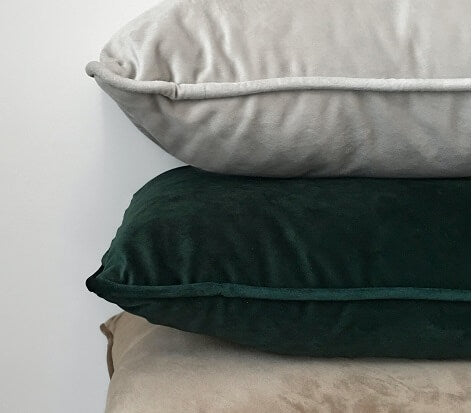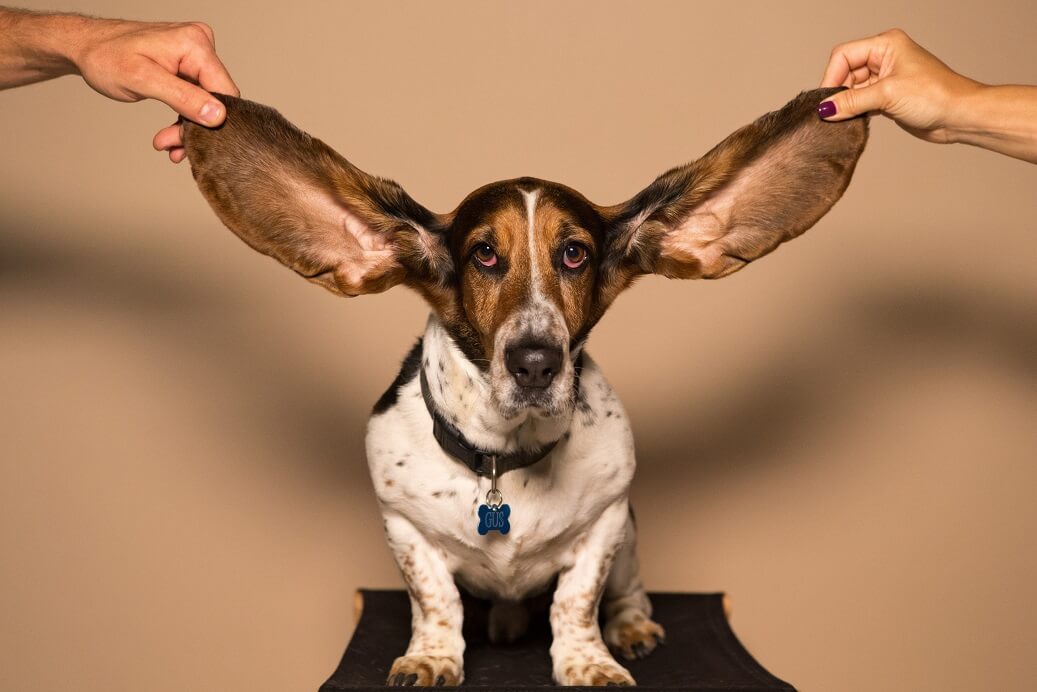Intro
Are you experiencing difficulty sleeping at night? If you wake up feeling tired, drowsy, and irritable, there's a possibility that you have sleep apnea. This condition can make your breathing stop or become shallow while you sleep, causing you to wake up frequently throughout the night. But what kind of doctor should you see for sleep apnea? It can be challenging to know which type of specialist can provide the right treatment for your specific case. In this blog post, we'll answer some of your most pressing questions and provide some guidance to help you find the right doctor for your sleep apnea treatment.
What is Sleep Apnea and Why is Treatment Important?
Sleep apnea is a common sleep disorder that causes interruptions in breathing while you sleep. This condition occurs when the muscles in the back of your throat fail to keep the airway open, leading to repeated pauses in breathing. These pauses, called apneas, can last from a few seconds to a minute or more and may occur up to 30 times or more in an hour.
If left untreated, sleep apnea can lead to a range of health problems, including high blood pressure, heart disease, stroke, and type 2 diabetes. Additionally, sleep apnea can lead to fatigue, drowsiness, irritability, and difficulty concentrating, making it challenging to function during the day.
Treatment for sleep apnea is critical to avoid these potential health issues and improve your quality of life. The right treatment can help you achieve restful, restorative sleep, reduce the risk of serious health problems, and alleviate the symptoms associated with sleep apnea.
If you're struggling with sleep apnea, seeking treatment from the right doctor is an important first step. In the following sections, we'll explore the types of doctors who can treat sleep apnea and help you determine which one is best for your needs.
Sleep Specialist or Pulmonologist
If you suspect that you have sleep apnea, you may be wondering which type of doctor to consult for a proper diagnosis and treatment plan. One option is to see a sleep specialist or a pulmonologist, both of whom are experts in respiratory and sleep disorders.
Sleep specialists are medical doctors who have specialized training in sleep medicine. They may be pulmonologists, neurologists, or psychiatrists who have completed additional training in sleep medicine. These doctors are often affiliated with sleep centers or clinics and can provide comprehensive evaluations for a range of sleep disorders, including sleep apnea.
Pulmonologists, on the other hand, specialize in diagnosing and treating lung and respiratory conditions. Many people with sleep apnea have co-existing respiratory issues, making pulmonologists a logical choice for managing sleep apnea.
Both sleep specialists and pulmonologists can order and interpret sleep studies, which are crucial for a proper diagnosis of sleep apnea. They can also work with patients to develop an appropriate treatment plan, which may involve lifestyle changes, medical devices such as continuous positive airway pressure (CPAP) machines, or surgery in some cases.
When choosing between a sleep specialist and a pulmonologist for sleep apnea treatment, it’s important to consider their qualifications, experience, and reputation in the field. Some people may feel more comfortable working with a sleep specialist who has specific training in sleep medicine, while others may prefer a pulmonologist who has extensive experience treating respiratory conditions.
Ultimately, the most important factor is finding a doctor who can provide the highest level of care and personalized attention to help manage your sleep apnea symptoms and improve your overall health and well-being.
Otolaryngologist or ENT Specialist
Another doctor who may be able to provide treatment for sleep apnea is an otolaryngologist or ENT (ear, nose, and throat) specialist. This type of doctor specializes in the treatment of conditions that affect the head and neck area.
In the case of sleep apnea, an ENT specialist can help by assessing the upper airway for any physical abnormalities that may be contributing to the condition. They can also offer surgical interventions to correct any issues they identify.
For example, an ENT specialist may perform a procedure called a uvulopalatopharyngoplasty (UPPP), which removes excess tissue in the throat to open up the airway and improve breathing during sleep.
In addition, an ENT specialist can work in collaboration with a sleep specialist to develop a comprehensive treatment plan that may involve the use of CPAP therapy, lifestyle changes, and surgical interventions.
If you decide to see an ENT specialist for your sleep apnea, be sure to find one who has experience in treating this specific condition. Look for a doctor who is board-certified in otolaryngology and has a track record of success in treating sleep apnea. Your primary care physician or sleep specialist may be able to recommend a qualified ENT specialist in your area.
Overall, an otolaryngologist or ENT specialist can be an excellent choice for those seeking treatment for sleep apnea. With their expertise in the head and neck area and access to a variety of surgical interventions, they can help to effectively treat this condition and improve your quality of life.

Neurologist
If you have been diagnosed with a neurological disorder such as epilepsy or multiple sclerosis, or you are experiencing symptoms of daytime fatigue, headaches, or trouble concentrating, you may want to consider seeing a neurologist for sleep apnea treatment.
A neurologist is a medical professional who specializes in diagnosing and treating diseases of the nervous system, including the brain, spinal cord, and nerves. When it comes to sleep apnea, a neurologist can help determine the underlying cause of the condition, which may be related to a neurological disorder.
A neurologist will perform a thorough physical examination, which may include a neurological assessment to determine if there are any abnormalities in your brain function. They may also perform a sleep study to monitor your sleep patterns and identify any issues with your breathing during the night.
Depending on the results of your examination, a neurologist may recommend treatment options such as medication to improve sleep quality or surgery to correct a physical abnormality that is causing sleep apnea. They may also refer you to a sleep specialist for further evaluation or treatment.
If you have a neurological disorder, it is essential to see a specialist who can help manage your symptoms and improve your overall quality of life. A neurologist is well-equipped to provide this type of care and can work with you to develop a personalized treatment plan that meets your needs.
Dentist with Specialization in Sleep Medicine
Another doctor who can help with sleep apnea is a dentist who specializes in sleep medicine. These dentists have additional training and expertise in the diagnosis and treatment of sleep-related breathing disorders.
Dentists can create custom-fitted oral appliances that can help to keep the airway open while sleeping. These devices can be an effective alternative to a continuous positive airway pressure (CPAP) machine, which some people find uncomfortable.
During your visit with a dentist specializing in sleep medicine, they will conduct a thorough exam of your mouth and jaw to determine the best course of action. They may also recommend lifestyle changes, such as losing weight or quitting smoking, to help reduce symptoms of sleep apnea.
If you choose to see a dentist for your sleep apnea treatment, be sure to select one who has specific training and experience in sleep medicine. They should also be willing to work with your primary care physician and other healthcare providers to ensure that you receive the best care possible.
In summary, a dentist specializing in sleep medicine can be a great choice for those who prefer non-invasive treatment options for their sleep apnea. These specialists can provide customized oral appliances to help keep the airway open while sleeping and improve overall quality of life.
Choosing the Right Doctor for Your Needs
Now that you have a better understanding of the types of doctors who treat sleep apnea, you may be wondering which one is the best fit for your needs. Here are some factors to consider when choosing the right doctor:
- Your Symptoms: If your sleep apnea is mild, you may be able to start with a primary care physician who can refer you to a specialist if necessary. However, if your symptoms are severe, it's best to go straight to a sleep specialist or pulmonologist.
- Medical History: If you have underlying health conditions such as heart disease, high blood pressure, or diabetes, it's important to see a doctor who has experience treating both your condition and sleep apnea.
- Treatment Preferences: Depending on the severity of your sleep apnea, there are several treatment options available, such as continuous positive airway pressure (CPAP), oral appliances, or surgery. If you prefer a specific type of treatment, make sure to find a doctor who specializes in that method.
- Insurance Coverage: Before making an appointment, it's important to check if your insurance plan covers the specific doctor and treatment you are considering. Some insurance plans require a referral from your primary care physician, so make sure to check your policy.
- Personal Connection: Lastly, it's important to choose a doctor you feel comfortable talking to and who listens to your concerns. Building a good doctor-patient relationship is essential to your treatment success.
Remember, treating sleep apnea is not a one-size-fits-all approach. By considering these factors, you can choose the right doctor for your unique needs and achieve better sleep and overall health.







